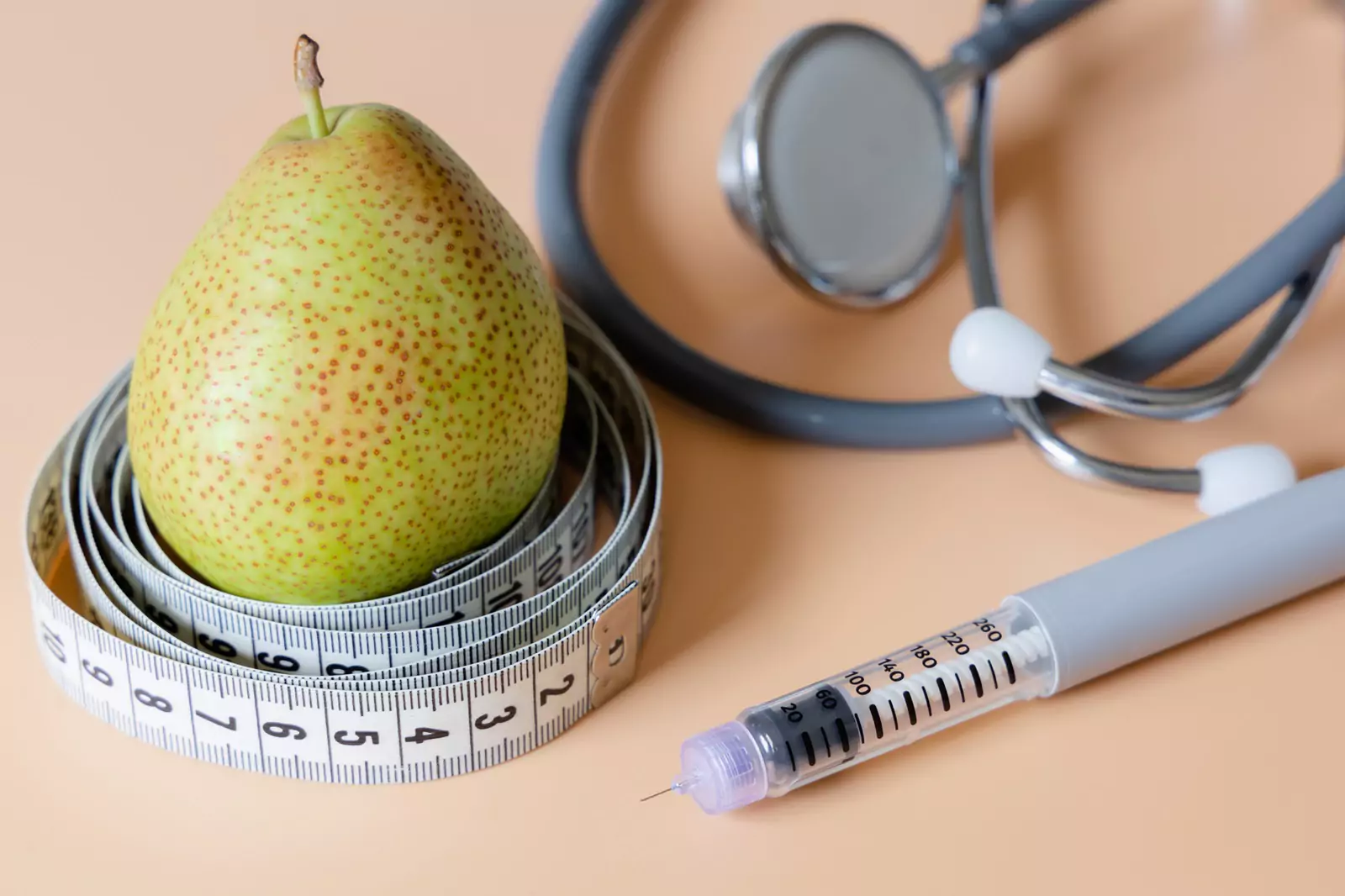
UP TO 40% OFF SITEWIDE






Intermittent Fasting for Diabetes


Table of Contents
Intermittent fasting (IF) has emerged as a revolutionary approach to health and wellness, capturing the attention of medical experts, fitness enthusiasts, and individuals seeking to manage chronic conditions like diabetes. Unlike traditional dieting methods that focus on calorie counting or specific food restrictions, IF emphasizes the timing of eating. It involves alternating periods of fasting with regular eating, creating a pattern that many find more sustainable and flexible.
The growing popularity of IF is not just a trend but a response to the increasing prevalence of diabetes, a condition that affects millions worldwide. Diabetes management requires careful consideration of diet, exercise, and medication.
Intermittent fasting offers a unique perspective on controlling blood sugar levels, aligning with the body's natural metabolic rhythms, and potentially reducing the need for medication. This article delves into the benefits of IF for diabetes, shedding light on how this eating pattern can be a valuable tool in diabetes management.
Benefits of IF for Diabetes
One of the most promising benefits of intermittent fasting (IF) for diabetes is its ability to regulate blood sugar levels. This regulation is vital for individuals with diabetes, as fluctuating glucose levels can lead to various health complications. IF's approach to eating and fasting aligns with the body's natural metabolic cycles, allowing for more stable blood sugar management.
Studies have shown that IF can lead to a metabolic switch from glucose as the primary energy source to fat. This switch is not just a temporary change but a profound alteration in how the body processes energy. It promotes insulin sensitivity, allowing the body to use insulin more effectively to control blood sugar. For people with type 2 diabetes, this can translate into significant improvements in daily glucose readings and long-term hemoglobin A1c levels, a key marker for diabetes control.
Increased Insulin Sensitivity
Insulin sensitivity is a critical aspect of diabetes management. It refers to how responsive the body's cells are to insulin, the hormone responsible for regulating blood sugar. Increased insulin sensitivity is a desirable outcome for individuals with diabetes, as it means that the body requires less insulin to manage blood sugar levels.
Intermittent fasting promotes this sensitivity by giving the body regular breaks from food. During fasting periods, insulin levels drop, reducing insulin resistance and enhancing the body's ability to respond to insulin. This natural alignment with the body's insulin regulation can lead to reduced medication costs and a more balanced approach to managing diabetes.
The connection between IF and insulin sensitivity is not merely anecdotal; it's supported by scientific research. Studies have demonstrated that IF can improve insulin sensitivity in both animal models and human trials, offering a promising avenue for diabetes management.
Weight Loss and Metabolic Improvements
Weight loss is often a central goal in managing diabetes, particularly for those struggling with obesity or overweight. Intermittent fasting has proven to be an effective method for shedding unwanted pounds, offering a flexible and sustainable approach to weight management.
By restricting eating to specific time windows, IF encourages the body to burn fat instead of glycogen stored in the liver. This shift in energy utilization promotes weight loss and gives a break to vital organs like the liver and pancreas, leading to overall metabolic improvements. The resulting weight loss is not merely cosmetic; it has profound health implications. Losing excess weight can help lower A1c levels, a critical marker for long-term blood sugar control.
It can also reduce the risk of heart disease, a common and serious complication for individuals with diabetes. Moreover, IF's impact on weight loss is not just about reducing calorie intake. It's about aligning with the body's natural rhythms, promoting a healthier relationship with food, and fostering a lifestyle that supports overall well-being.
SugarMD Advance Glucose Support

Maintaining healthy blood sugar levels can be a challenge. From carby meals to snacks and even with all the effort, it’s still not enough. That’s where SugarMD Advanced Glucose Support comes in. Our blend of traditional Ayurvedic herbs helps regulate blood sugar levels, curbs cravings, supports weight loss, boosts metabolism and energy. Endorsed by endocrinologists, this unique formula of pure, potent herbs promotes overall blood sugar health. Ideal for both pre-diabetics and Type 2 diabetics.
Potential Risks and Considerations
Hypoglycemia
While IF offers promising benefits for diabetes management, it's essential to recognize potential risks and considerations. One of the most significant concerns is hypoglycemia, or low blood sugar. This condition can occur in individuals on specific diabetes medications, particularly those that stimulate insulin production.
Hypoglycemia can be a dangerous condition, leading to symptoms such as shakiness, confusion, dizziness, and even coma if not addressed promptly. Monitoring blood sugar levels during fasting is crucial to prevent these dangerous drops. Regular checks and having a plan to treat low blood sugar, such as consuming a fast-acting carbohydrate, can mitigate this risk.
Dehydration and Fatigue
Dehydration is another potential side effect of IF. Fasting periods may lead to reduced fluid intake, causing dehydration symptoms like dry mouth, thirst, and fatigue. Ensuring adequate fluid intake during both fasting and eating windows is vital to a successful fasting experience. Drinking water, herbal teas, or other non-caloric beverages can help maintain hydration.
Fatigue can also be a concern, especially during extended fasting periods. Being mindful of energy levels and planning fasting periods around rest days or less demanding activities can help manage fatigue. Listening to the body and adjusting fasting schedules as needed ensures a sustainable and beneficial IF practice.
Consultation with Healthcare Providers
Given the potential risks and the individualized nature of diabetes management, consultation with healthcare providers is paramount before embarking on IF. Medical professionals, including doctors, dietitians, and diabetes educators, can tailor IF to individual needs, adjusting medication doses, and providing guidance on safe fasting practices.
Individualized Planning
Every person with diabetes has unique needs and considerations. Healthcare providers can assess individual factors such as medication type, blood sugar control, lifestyle, and overall health to create a personalized IF plan. This individualized approach ensures that IF aligns with other diabetes management strategies, enhancing overall well-being.
Balanced Approach
A balanced approach that includes healthy eating on non-fasting days and avoiding intense workouts during fasting periods can further enhance the benefits of IF for diabetes management. Nutrient-dense meals that provide essential vitamins and minerals support overall health, while mindful exercise planning prevents undue stress on the body during fasting.
Conclusion
Intermittent fasting for diabetes offers a multifaceted approach to improving insulin sensitivity, regulating blood sugar, and supporting weight loss. However, it requires careful consideration of potential risks and individualized planning with healthcare providers. By understanding the mechanisms and precautions of IF, individuals with diabetes can explore this dietary strategy as a complementary tool for managing their condition.
About The Author
Meet Dr. Ahmet Ergin a highly skilled and dedicated endocrinologist with a passion for diabetes care. Dr. Ergin earned his medical degree with honors from Marmara University in Istanbul. He completed internal medicine residency and endocrinology fellowship at Cleveland Clinic.
Dr. Ergin is board-certified in Internal Medicine, Endocrinology, Diabetes, and Metabolism due to his vast medical expertise. He's a certified diabetes educator, author of "The Ultimate Diabetes Book," and founder of "the SugarMD YouTube channel."
Dr. Ergin offers exceptional diabetes care to his patients in Port Saint Lucie, FL, helping them manage effectively. Disclaimer: These statements have not been evaluated by the Food and Drug Administration. Information on this website isn’t intended to treat, cure or prevent any disease. Discuss with your doctor and do not self-treat.
Written By Dr. Ahmet Ergin
465 total articles
Meet Dr. Ahmet Ergin, a highly skilled and dedicated endocrinologist with a passion for diabetes care. Dr. Ergin earned his medical degree with honors from Marmara University in Istanbul. He completed internal medicine residency and endocrinology fellowship at Cleveland Clinic. Dr. Ergin is board-certified in Internal Medicine, Endocrinology, Diabetes, and Metabolism due to his vast medical expertise. He's a certified diabetes educator, author of “The Ultimate Diabetes Book,” and founder of “the SugarMD YouTube channel.” Dr. Ergin offers exceptional diabetes care to his patients in Port Saint Lucie, FL, helping them manage effectively. For a closer look into his insights and experiences, connect with Dr. Ahmet Ergin on LinkedIn, Instagram, and YouTube.”
Disclaimer: These statements have not been evaluated by the Food and Drug Administration. Information on this website isn't intended to treat, cure or prevent any disease. Discuss with your doctor and do not self-treat.
Products











